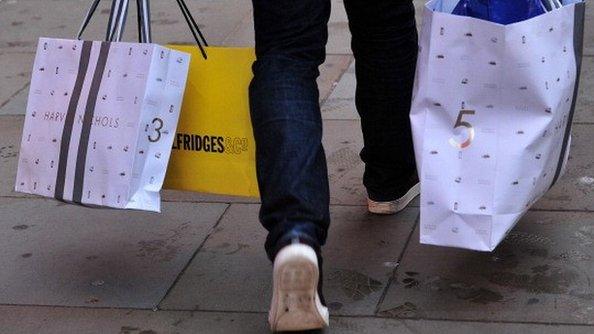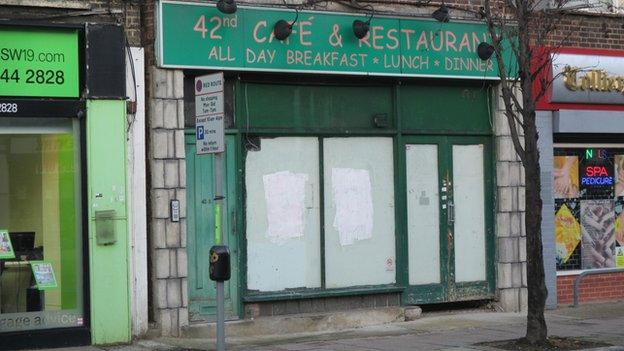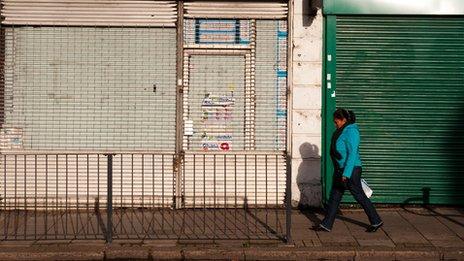High Street: Portas criticises government over 'token gestures'
- Published
'Queen of Shops' Mary Portas speaks to BBC Breakfast's Graham Satchell
Retail guru Mary Portas has accused the government of making "token gestures" in response to her 2011 review into how to rejuvenate struggling High Streets.
After her review, 27 areas were given funding to build more diverse town centres but results have been mixed.
Ms Portas has now called for faster action on "crippling" business rates and for local councils to be given the power to take control of empty shops.
The government says it has spent millions to help the High Street.
"The new powers this government has given councils and communities... have revived High Streets up and down the country," Communities Minister Penny Mordaunt said.
A full "structural review" of the business rates system in England was also announced in the Autumn Statement, with the results due to be published in 2016.

Portas Review main recommendations:
Improve management of High Streets with new "town teams" (interested groups that have funding control)
Affordable town centre car parking
"Town centre first" approach in planning
Disincentives for landlords who leave shops empty
Greater inclusion of the High Street in neighbourhood planning

When asked for her thoughts on delivering on the recommendations of her review, Ms Portas told BBC Breakfast that "333 High Streets have benefited from an investment of £3.6m via their town teams" and also pointed to additional funding made available by the High Street Innovation Fund and the High Street Renewal Awards.
Markets were "really thriving" and the results in some of the 27 Portas Pilot Towns had been "astonishing", she said.
But she went on: "Three years on there is still a big job to be done. The government has made token gestures in response to my review, but much more needs to happen, and fast.
High Streets in decline
16
shop closures a day in town centres
-
1 in 10 shops are empty
-
63 net increase in betting shops, the fastest growing type of shop, in the first half of 2014
-
1.4% reduction in October of the number of people visiting High Streets
"Why are there still so many empty shops left deteriorating on our High Streets? Local authorities should be granted the power to take control of these premises and use them creatively or commercially for the benefit of the community.
"Why are we still imposing crippling business rates which were established in Elizabethan times? The current system is out of date and favours online and big business. The Autumn Statement introduced some more rate relief measures, but these are just tinkering around the edges."
She called for the government to publish guidelines for town teams attempting to make changes, for instance on parking schemes, and for there to be a focus on town regeneration over out-of-town planning.
Ms Portas also said: "The real story behind our current fight for the High Streets is about people.
"Rotherham and Market Rasen or Deal and Sherbourne, with or without government funding, they are turning their High Streets around and getting on with it.
"Their dedication has made the place they live, work, socialise and shop a place they can cherish and be proud of. And I am proud to have been part of this worthy effort with them."
Communities Minister Ms Mordaunt said: "Mary Portas has helped raise the profile of British High Streets and as she makes clear there are many tangible successes to be proud of.
"We've brought in a simpler planning process, with less red tape and tackled over-zealous parking to help town centres thrive. And our business rate relief for many small shops has provided £1bn worth of support."
- Published9 October 2014

- Published8 December 2014

- Published5 October 2014

- Published30 March 2012
